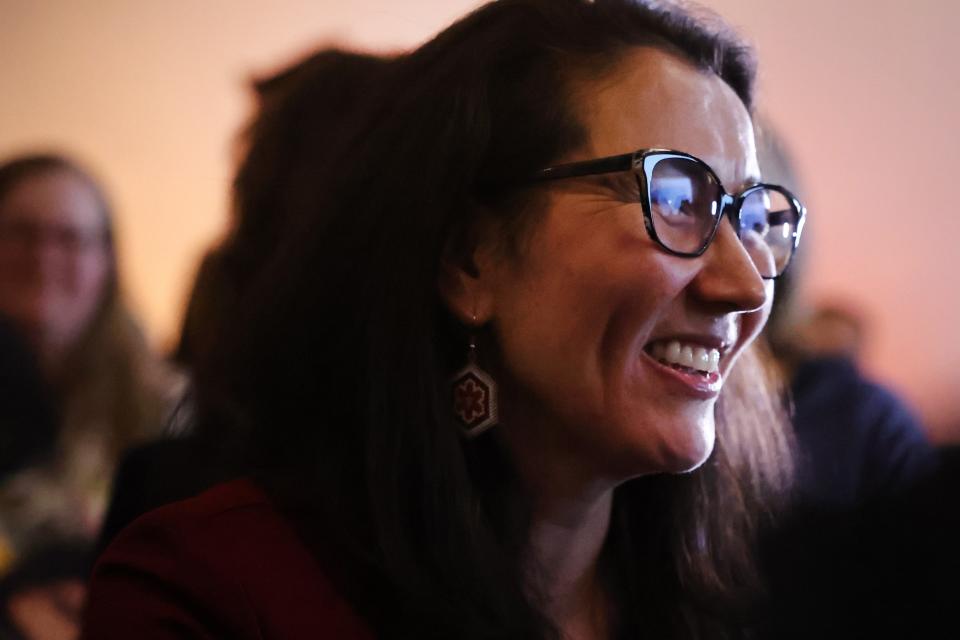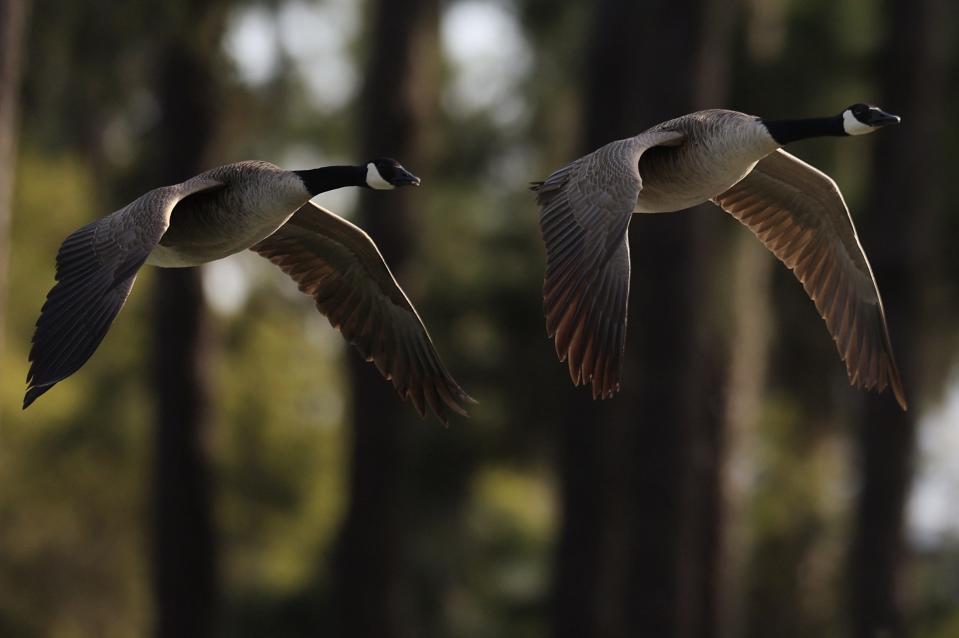According to a recent poll, seventy percent of Alaskans would support a total ban on industrial pollock trawlers off the state’s coasts. In line with this overwhelming support, U.S. Rep. Mary Sattler Peltola, D-Alaska, introduced legislation last week that spurred reactions from leaders of industrial trawler fleets that would be affected by the federal legislation if it were to become law.


The proposed nationwide legislation, introduced on May 22, isn’t a ban but a bipartisan effort in response to the depletion of various species of marine life affected by simultaneous interactions with climate change and industrial-scale pollock trawler operations. A Data for Progress poll indicates about two-thirds of Alaskans would support a ban on industrial pollock trawling off Alaska’s coasts. However, the legislation was characterized by pollock industry leaders as falling short of the best available science.
“Fisheries are highly complex, which is why Congress created regional councils to issue regulations based on [a] deep understanding of the facts and science, said Eric Deakin, CEO, Coastal Villages Region Fund. The voting members of the North Pacific Fishery Management Council have been accused of having “an economic interest in the trawl fleet.”
Members of the scientific community, salmon and crab fishermen, and communities that subsist on salmon have questioned the efficacy of the “science-based” policies implemented through the North Pacific Fishery Management Council over recent decades.
“It’s kind of a massive industry-run experiment at sea to take a bunch of fish out of the ocean every year and see what kind of system we’re left with,” said Jon Warrenchuk, Senior Scientist at Oceana.
The pollock trawlers remove approximately 3.2 billion pounds of biomass from the Bering Sea annually on a ten-year average, and incidentally catch, or bycatch, 141 million pounds of salmon, crab, halibut and other species each year on a decade average as they target large schools of pollock, according to ocean conservancy organization Salmonstate.
U.S. Rep. Jared Huffman, D-California, a co-sponsor of Peltola’s new legislation, introduced the Magnuson-Steven Reauthorization Act that, among many other changes, would include voting tribal seats on the NPFMC, which would reinforce further inclusion of traditional knowledge in the management of fisheries.
“Why not try some of the experiments that people who are seeing an impact are suggesting?” asked Warrenchuk, referencing subsistence communities that have suffered from salmon crashes.
“‘Turn off the bycatch for a while and see what happens.’ That’s not unreasonable from a Western science perspective. You need a control, you need something to compare it to. How do you compare successive returns when there is bycatch to successive returns when there is not bycatch,” asked Warrenchuk while expressing a common concern in the fishing, subsistence and scientific communities.”
[Reporter note] Written into law under Magnuson-Stevens Act National Standard Two says, ‘Relevant local and traditional knowledge should be obtained, where appropriate, and considered when evaluating the Best Scientific Information Available.’
Q: Should co-equal government between tribes and federal and state governments be more widely known and enforced?
Absolutely.
Q: Has the government evaluated and defined industrial interactions with natural resources in a limited and changing frame of reference?
There are bound to be human errors; it is very real, and a lot of our studies are very specific or related to a very short period of time. One of the concerns that I had is that, as somebody who’s been involved in fishing for about 45 years, I have a different kind of baseline or time horizon, and a lot of the managers are putting these very truncated time horizons before stakeholders, like the last ten years, to make it seem as though our [salmon] run is not as poor as it is. But if you’re a 50-year-old person and have been fishing for 44 years, you have a different understanding of abundance than somebody who has only been fishing for 5 or 10 years.
Q: Would you say that how we relate to ecology and rely on it to live is a growing concern in America and, specifically in Alaska today?
I do think so. I think that there are people who have always known that we are all related, every organism on Earth is related. There are butterfly effects that you can see with everything. But there are a lot of people who compartmentalize, and I think that this is a really good example of single-species management, and how it does not best serve people at the end of the day; it does not best serve our ecosystem. When we have a species that is anadromous [migrating up rivers from the sea to spawn], like salmon, we find ourselves in a situation where the Department of Fish and Game is saying, ‘Well, this is happening in the ocean, that’s not our jurisdiction,’ and then the North Pacific Fisheries Management Council says, ‘These are anadromous fish and their home is really in the river, and that’s not our jurisdiction. So, both of them are able to kind of pawn it off on each other or a problem off of any jurisdictional management or responsibility. So they’re not being managed for the people who depend on them, or they’re being cross-managed, I guess I don’t really know how to explain this, but, you know, talking about a single disease in isolation seems like a fool’s errand because everything is related.
Q: Would you say that the fast rate of changes to our environmental and fishery policies in recent decades alone shows that mistakes have been made?
I’m reluctant to spend time blaming, finding blame, or labeling things as mistakes. I think that [it] is a perfect storm. I think, yeah, 30 years of metric tons of bycatch of juvenile salmon, halibut, [and] crab has got to have an effect after 30 years, but we’re also seeing that compounded by ocean acidification, by one or two or three-degree temperature change [and] lack of ice. We had five years in Alaska where we did not have a good snowpack, which definitely impacts salmon. But, I definitely think.. I know, that we had a different paradigm. And now we’re in a new paradigm, and we must course-correct. Our management system cannot be as slow as they have been, [and] this has been a problem on the large rivers in Alaska.
This has been a problem in the reduction of abundance and size and lack of meeting families’ harvestable needs. This has been a problem on Norton Sound for 30 years, [and] this has been a problem on the Yukon River for ten years. This has been a problem on the Kuskokwim River for 10 or 15 years, and we have not done enough to keep up with these fast-paced ecological changes. So now, we’re 30, 20, 15 years into it; we don’t have another ten years to debate this or talk about blame or mistakes. We have just got to pivot quickly.


‘It’s a real-time kind of knowledge.’
The funny thing about that term is that it makes this sound like it’s all historical, but if you look at academic definitions of traditional knowledge, that term also relates to what’s happening now and what’s happening in the future.
It’s a real-time kind of knowledge. So, on the Kuskoquim River, the Department of Fish and Game, which has been our management authority since the ’60s and ’70s, what they are now using as a forecast for the upcoming season for Chinook salmon is whatever the run was last year. They used to do it by parent years, depending on the species, [it is] sometimes five years, sometimes six years, sometimes four years, and they look at what’s abundant with them and what the data was then, and then they look the brood year.
Now, that has become so unreliable that the Department of Agriculture is now looking at just the previous season, and that’s their run estimate for the upcoming season. When I worked for the Kuskokwim River Intertribal Fish Commission, the in-season managers, the fish commissioners who are from the river, these are people who have spent every summer of their life on that river, at their fish camps, their parents spent every summer of their life on that river, at their fish camps, their grandparents. … What some of our commissioners would look at as a forecast for the incoming Chinook run was how the migratory birds returned.
So, how the Canadian geese come back is how the Chinook salmon come back, and there is a 100% correlation that I’ve witnessed personally since 2017. So, if the Canadian geese are early, the Chinook are early; if they are abundant, the Chinook are abundant. A couple of years ago, I … noticed the Canadian geese migration came back home, and then it tapered way off, and a lot more Canadian geese came back in another wave, and that is exactly what the Chinook salmon did.
That kind of understanding, that correlation between species, and between returning migrations has been really valuable for determining if there could be 12 or 18 hours more fishing time, and they have not missed their escapement target yet.
When I’m talking about traditional knowledge, that’s the kind of traditional knowledge that is really helpful because our Western science is fabulous, it’s wonderful, we’ve had so many advances because of Western science, but yet it still has many gaps. There’s a complete lack of understanding in salmon management right now, about run timing, run strength, there’s just so many gaps, and traditional knowledge can help fill the gap.
This article originally appeared on USA TODAY: Rep. Mary Peltola talks fishing in Alaska, the great trawler debate
